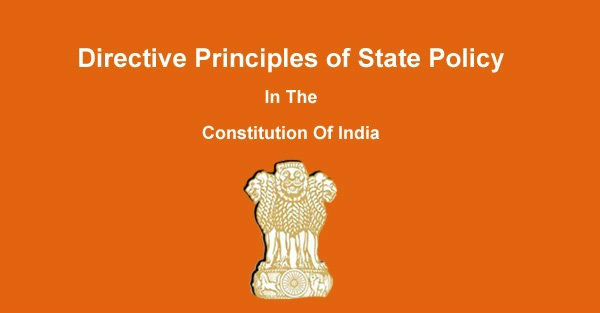Introduction
- A list of policy guidelines is included in the Constitution known as “the Directive Principles of State Policy” .
- These guidelines are ‘non-justifiable’, i.e., parts of the Constitution that cannot be enforced by the judiciary.

Goals of DPSP
- Following are the significant Goals of DPSP −
- Welfare of the people; Social, economic, and political justice;
- Raising the standard of living; equitable distribution of resources;
- Promotion of international peace.
Policies of DPSP
- Following are the important Policies of DPSP −
- Uniform civil code;
- Prohibition of consumption of alcoholic liquor;
- Promotion of cottage industries;
- Prevention of slaughter of useful cattle;
- Promotion of village panchayats
Non - Justifiable rights of DPSP
- Following are the major non-justifiable rights of DPSP −
- Adequate livelihood;
- Equal pay for equal work for men and women;
- Right against economic exploitation;
- Right to work; and
- Early childhood care and education to children below the age of six years.
Difference between DPSP & FR
- Following are the major differences between the Fundamental Rights and the Directive Principles of State Policy −
- The Fundamental Rights mainly protect the rights of individuals, while the directive principles ensure the well-being of the entire society.
- The Fundamental Rights are justifiable and can be claimed in the court of law, whereas the Directive Principles of State Policy cannot be enforced by the judiciary.
- The Fundamental Rights restrain the government from doing certain things, while the Directive Principles of State Policy insist the government to do certain things.
- Regarding the Right to Property, the Constitution made it clear that property could be taken away by the government for public welfare.
- In 1973, the Supreme Court gave a decision that the Right to Property was not a part of the basic structure of the Constitution and therefore, the Parliament has the power to abridge this right by an amendment.
- In 1978, the 44th amendment to the Constitution removed the Right to Property from the list of Fundamental Rights and transformed it into a simple legal right under Article 300 A.
Comments
Post a Comment